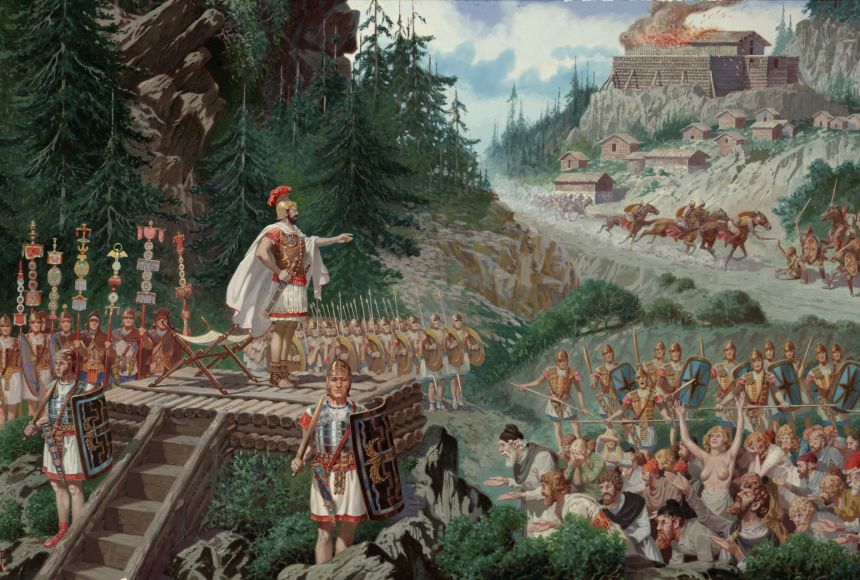For centuries, leaders have used their power to overtake other societies. Some have done it to expand the extent of their power, others to increase their riches.
Throughout history, many different kingdoms have risen and fallen. Many empires have been born out of nothing and then collapsed to ruin. Men have used large armies to wrestle power away from mighty emperors and kings. Others have relied on their ability to rally the masses behind their cause, noble or otherwise. What is clear throughout history, from Julius Caesar to Genghis Khan, is that it takes a distinct personality to be a conquerer.
More Territory, Cultural Exchange
Similar motivations connect some of history's greatest conquerors. For example, many wanted more territory so their empires could grow in size as well as develop culturally. From 336–323 B.C.E., Alexander (the Great) of Macedonia not only conquered most of the known world, he also spread Greek culture from Egypt to India. At the same time, he encouraged cultural exchange within his empire, which allowed Greek culture to absorb new influences. During the second century B.C.E., the Roman Empire conquered Macedonia and absorbed both the Macedonian kingdom and Greek culture into its empire. Between 320 and 550 C.E., the Gupta Empire grew from a small portion of northern India to a vast territory that stretched from the Arabian Sea to the Bay of Bengal. As the empire grew in size, it also developed culturally, and education and art thrived.
Chance To Win Riches
The spoils of war can be a significant motivation for conquest. When Genghis Khan led the Mongols into battle in the 1200s C.E., many of his soldiers were motivated by the chance to win riches. Julius Caesar was motivated by wealth as well. In fact, it was this motivation that led to his conquest of Gaul in 58 B.C.E. Gaul comprised three territories in Europe that spanned parts of modern-day France, Switzerland, Belgium, Luxembourg, Germany, and northern Italy.
Control over Trade
Another long-term motivation was the desire for control over trade. For the Mongols, the chance to control the Silk Road was an attractive reason for conquest. The Silk Road was a network of trade routes that stretched across Asia and into Europe. Early on, Mongols targeted states that controlled parts of this network.
Alexander, Julius Caesar, and William the Conqueror are three legendary conquerors. All three created and then expanded their empires because of a desire for both power and riches. This ambition pushed them to continue to enlarge the areas under their control. Larger empires meant more land, more people, and, by way of taxes and tribute, more wealth.
Alexander became king of Macedonia at just 20 years old. He was an ironfisted ruler who crushed rebellions and killed his enemies before they could become a threat. Alexander led his conquests with unmatched military skill. Julius Caesar first consolidated his own power within Rome. Then, he expanded Rome's influence and wealth through military conquest. William established the power of the state of Normandy and drastically changed English society through his conquest. As king of England, he redistributed the state's wealth, transferring power to his people, the Normans.
Charisma Protected their Positions as Rulers
Each of these leaders had a great deal of charisma. Their magnetic, inspiring personalities earned the devotion of their militaries. This support was crucial to their conquests and protected their positions as rulers.
Beyond the desire to rule, the perceived right to rule also motivated history's ancient conquests. Alexander believed himself to be half-god — the son of Zeus. He was convinced that he deserved success. William led the Norman Conquest in 1066 because he believed himself to be the rightful heir to the English throne. King Edward had promised that William would be his heir. However, Edward had also made this promise to others, causing several battles for the crown after his death. William eventually prevailed, and claimed what he perceived as his rightful place on the throne. Some historians theorize that Genghis Khan also felt he was destined to rule.
The desire for power is clearly very strong in history's leaders. Conquerors faced overwhelming dangers for a chance to rule but, to them, the rewards outweighed the risks.
